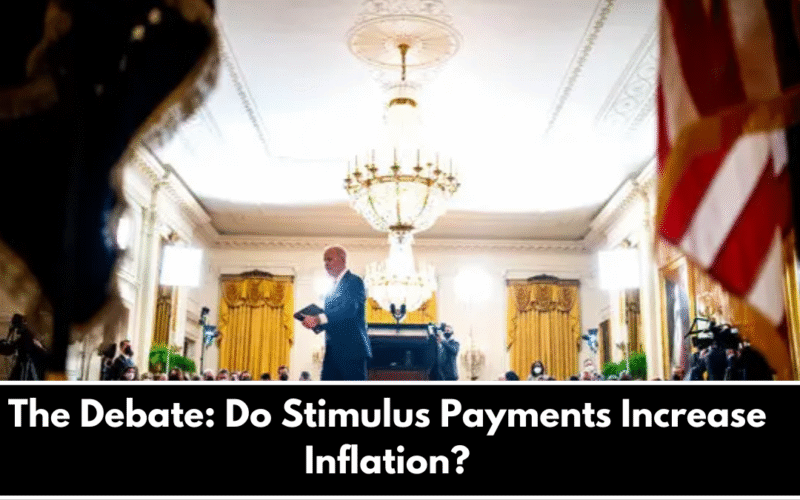When the COVID-19 pandemic hit, governments around the world responded with stimulus payments to help families and businesses survive the crisis. These payments gave people extra cash to cover rent, food, and bills. But after the economy began to recover, a debate started: Did these payments cause inflation? Supporters of stimulus argue that they were necessary to prevent economic collapse, while critics say they fueled rising prices. To understand this debate, we need to look at how stimulus works, what economists say, and the real-life impact on people.
How Stimulus Payments Can Lead to Inflation
One side of the debate argues that stimulus payments increased inflation. The logic is simple: when people have more money, they spend more. This higher demand can push prices up, especially if supply is limited. For example, during the pandemic, many industries faced supply chain issues. Factories were shut, shipping was delayed, and workers were scarce. At the same time, millions of households had extra money from stimulus checks. This combination of high demand and low supply is a classic recipe for inflation.
Economists who support this view say that while stimulus was helpful in the short term, it played a role in the sharp price increases seen in 2021 and 2022. Items like groceries, fuel, and housing became more expensive, hitting low-income families the hardest.
The Case Against Stimulus-Driven Inflation
On the other hand, many experts believe stimulus payments were not the main cause of inflation. They argue that global factors, such as supply chain disruptions, rising oil prices, and the Russia-Ukraine war, were far bigger drivers. For instance, even countries that did not give large stimulus payments, like many in Europe, still faced high inflation. This suggests that inflation was not only about people having extra cash but also about worldwide shortages and rising costs of production.
Supporters of stimulus also point out that without these payments, millions of families would have fallen into poverty. The money allowed people to pay rent, buy food, and avoid debt. In this sense, stimulus payments may have actually stabilized the economy by keeping businesses open and workers employed.
The debate over whether stimulus payments increased inflation is complex. While extra cash in people’s pockets may have added to price pressures, it was not the only cause. Supply chain problems, energy shortages, and global events also played major roles. What is clear is that stimulus payments helped millions survive during a time of crisis. The challenge for governments in the future is to balance economic support with inflation risks. Policymakers must find smarter ways to give relief without overheating the economy. In the end, stimulus payments were both a lifeline and a lesson—a reminder that every economic action has long-term effects.
FAQ’s:
1. What are stimulus payments?
Stimulus payments are financial aid given by governments to individuals during economic crises, usually to boost spending and prevent a deep recession.
2. Did stimulus payments directly cause inflation?
Not entirely. While they added demand, major causes of inflation also included supply chain disruptions, rising oil prices, and global conflicts.
3. Who benefited the most from stimulus checks?
Low- and middle-income families benefited the most, as the payments helped cover essential expenses like rent, groceries, and medical bills.
4. Could inflation have been avoided without stimulus?
Probably not. Even without stimulus, supply shortages and rising global energy prices would still have caused significant inflation.
5. What lessons can be learned for the future?
Governments should design targeted relief programs that support vulnerable groups while carefully managing inflation risks. Balancing short-term help with long-term stability is key.
